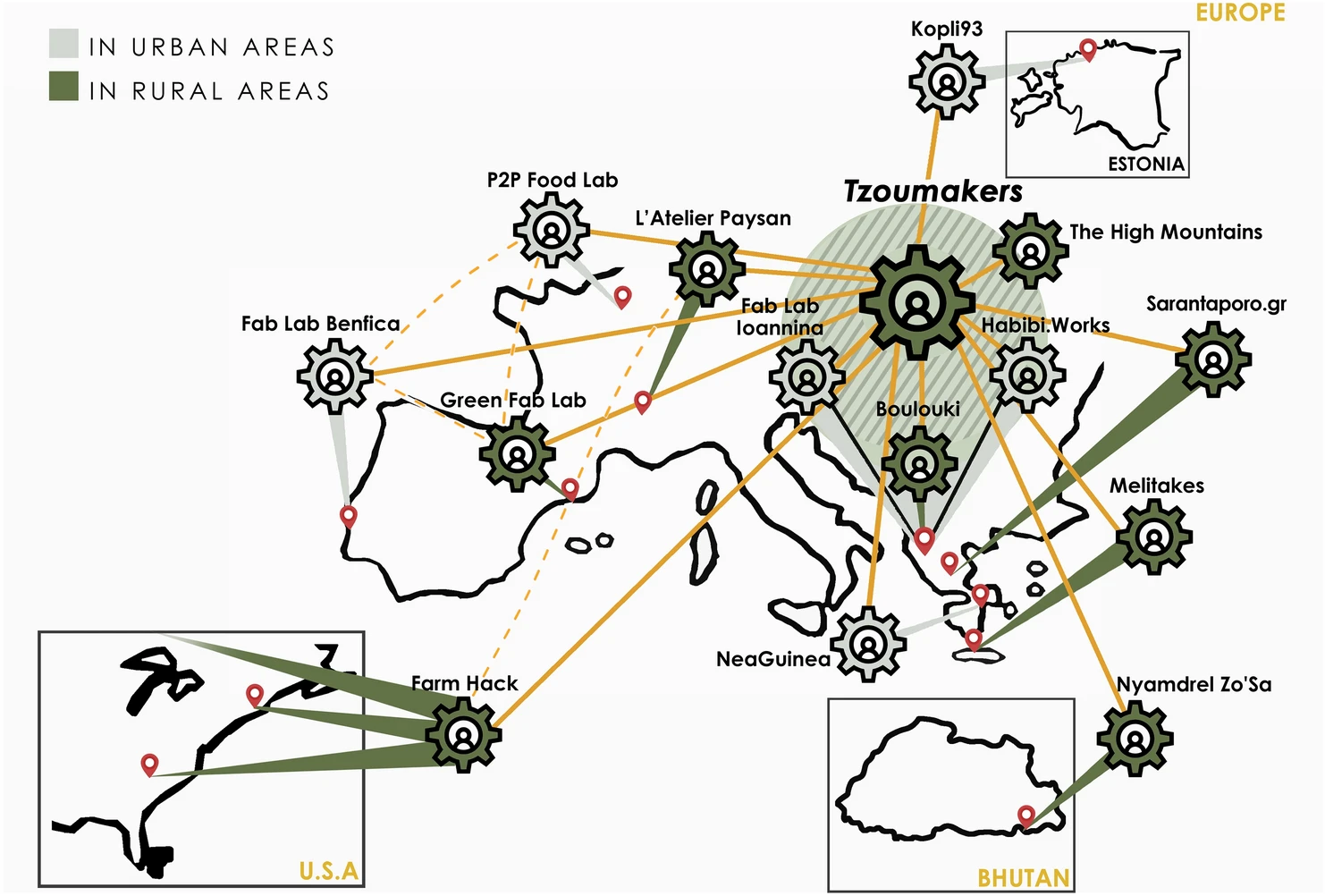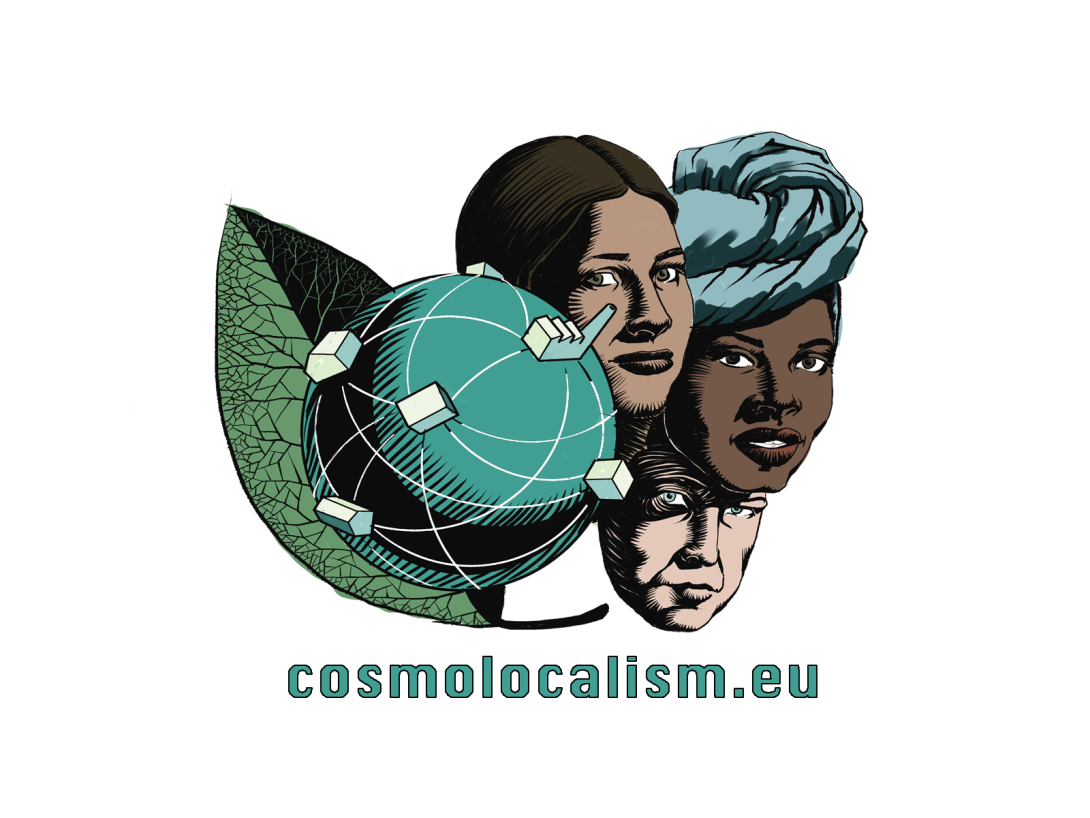Blog
Authored by Vasilis Kostakis and Christina Priavolou from P2P Lab, this blog post is based on a forthcoming article titled “What technology for post-growth?” which will be published here.
In a world marked by widening wealth disparities and existential ecological challenges, the reliance on yet-to-materialize technologies to address these issues appears increasingly bold. While narratives of “green growth” and “accelerationism” advocate for high-tech solutions, they often overlook the underlying issues of resource extraction, labor exploitation, and environmental degradation, particularly in marginalized regions.
Amidst this landscape, the concept of “cosmolocalism” emerges, offering an alternative production framework rooted in the commons and prioritizing socio-ecological well-being over profit motives. At its core, distributed design leverages digital communication networks to connect local communities, minimizing material and energy footprints while fostering shared infrastructures for knowledge exchange.
Examples abound of distributed design initiatives transcending profit maximization, such as networked micro-factories like makerspaces and fablabs, which serve as hubs for local manufacturing technologies. These initiatives, ranging from open-source agricultural machinery to bionic devices, harness global knowledge to craft locally relevant artifacts, thereby promoting local autonomy and contributing to the global digital commons.
While acknowledging tensions and contradictions, such as reliance on energy-intensive infrastructures, a distributed design framework holds the potential to unite diverse local initiatives, catalyzing genuine institutional and social change amidst existential threats. These initiatives, though seemingly modest, embody the transformative power of reclaiming the commons through empowerment and weaving together old and contemporary methods.
Drawing from five years of intensive research and pilot projects in Greece, Bhutan, and Estonia in the context of the Cosmolocalism project, the P2P Lab team has witnessed firsthand the transformative impact of distributed design initiatives on learning, localized production, and community development. These ventures represent the early stirrings of a paradigm shift in our approach to production, signaling an increasing momentum toward a distributed design context.
In conclusion, as we embark on the intricate journey toward a truly sustainable future, embracing distributed design endeavors as experimental ventures is promising. Yet, vigilance is essential to prevent co-optation by dominant paradigms. Nevertheless, the counterculture is steadily gaining ground, paving the way for a more equitable and ecologically sustainable future.

